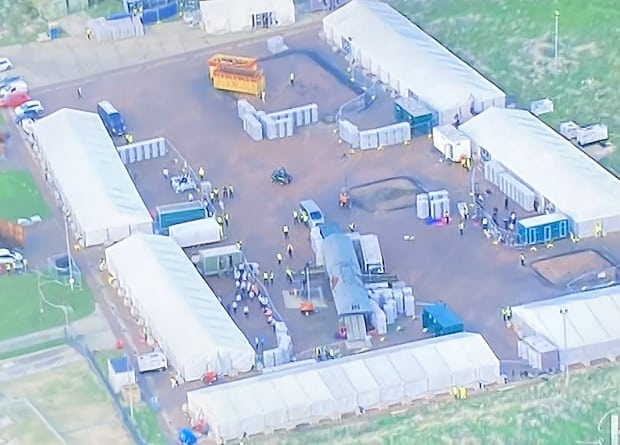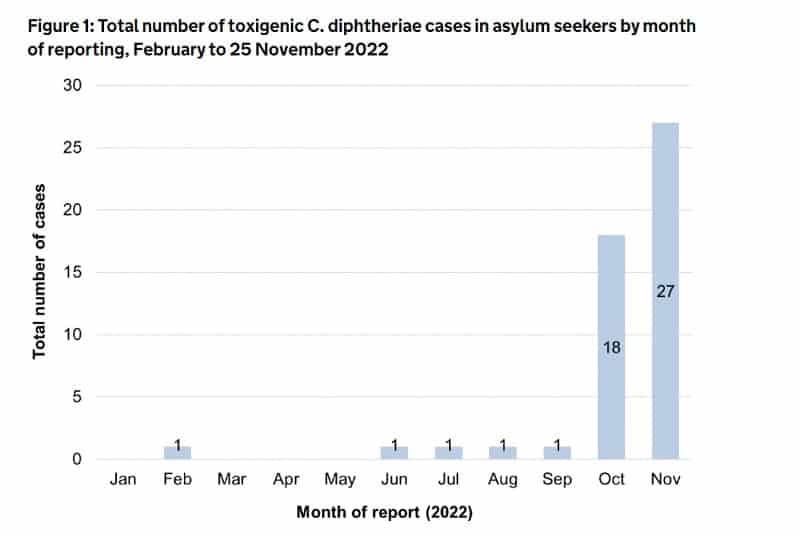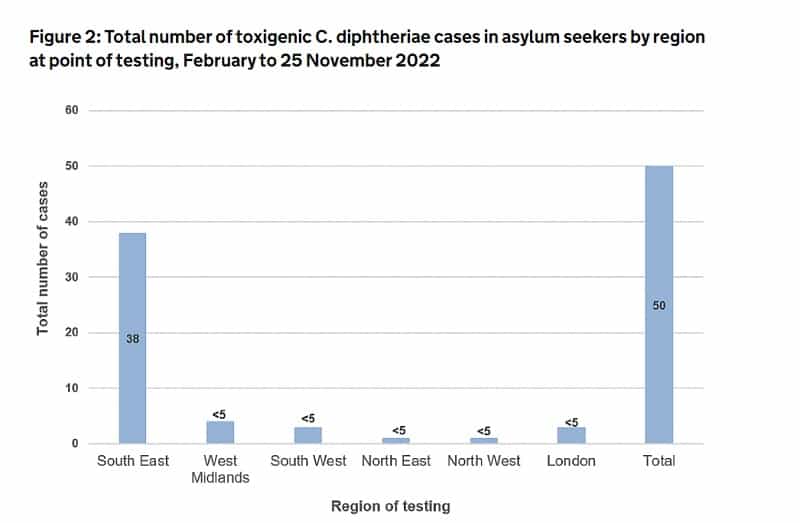
Fifty people who have arrived in the UK via irregular routes this year to seek asylum have been diagnosed with diphtheria, according to government statistics published today (November 28).
The first confirmed case was identified in February in the South East – likely Dover or Manston processing centre – and a further 49 confirmed cases reported as of 25 November.
These include 18 cases in October and 27 cases in November. Cases have mostly been identified in the South East shortly after people’s arrival to the UK.

Diphtheria is a very rare infection in England due to the success of the routine immunisation programme that was introduced in 1942, a time when the average annual number of cases was about 60,000 per year, with 4,000 deaths.
Over the past decade, the number of diphtheria cases in England has increased from an average of 2 to 11 cases per year (with the exception of 2020). In 2021, there were 10 cases of diphtheria in the UK.
Since 1 June, there has been an increase in cases reported among asylum seekers in Europe. Cases were predominantly among young males aged 14 to 25 years old.
The majority of cases have presented with skin lesions or wounds acquired during extensive travel en route to the UK/
There have been 2 severe cases of respiratory diphtheria and one fatality in a man who had been staying at Manston but died in hospital this month. The cause of death is yet to be confirmed pending post mortem.

Treatment involves prompt administration of diphtheria anti-toxin (DAT) for severe cases and clearance with appropriate antibiotics.
A UK Health Security Agency report says many of the cases have originated from diphtheria endemic countries and those people have spent many weeks travelling across Europe before reaching England.
In response to the increase in cases, UKHSA issued a national briefing to alert colleagues including NHS staff on the evolving epidemiology and highlight the importance of early diagnosis and prompt treatment of suspected cases
People arriving at Manston are offered diphtheria vaccinations as part of a mass vaccination programme at initial reception centres.
A UKHSA report says: “Contact tracing efforts have been made to screen and prophylax close contacts of cases. In initial reception centres where there are challenges to individual case management and contact tracing, mass antibiotic and vaccination of residents have been recommended and information resources in key languages made available to support implementation. The Home Office is working with the NHS and other partners to operationalise this.
“Most cases have had onset of symptoms prior to arrival into the UK suggesting infection has occurred along the extended travel route through Europe or at country of origin.”
The risk to the wider UK population is low due to the country’s childhood immunisation programme.

